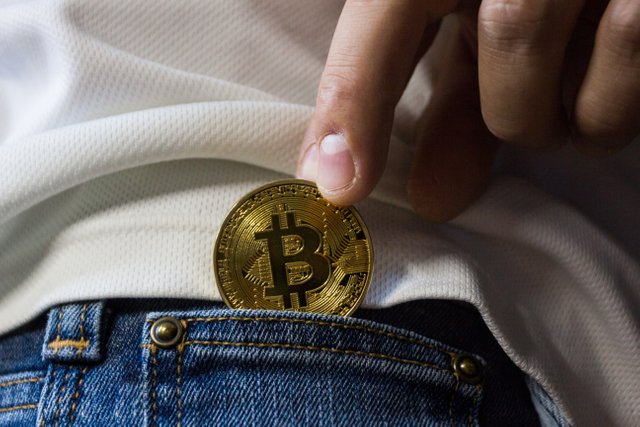
Are you interested in learning about Bitcoin? This revolutionary digital currency has taken the world by storm and is becoming more popular every day. In this article, we will provide a comprehensive guide to understanding Bitcoin, including its history, how it works, and its potential impact on the world.
This site was built using GitHub Pages.
Table of Contents
- What is Bitcoin?
- The History of Bitcoin
- How Does Bitcoin Work?
- Blockchain Technology
- Bitcoin Mining
- Bitcoin Transactions
- Bitcoin Wallets
- The Advantages of Using Bitcoin
- The Disadvantages of Using Bitcoin
- Bitcoin and the Economy
- The Future of Bitcoin
- Legal Considerations for Bitcoin Users
- Security and Safety of Bitcoin
- Myths and Misconceptions about Bitcoin
- Conclusion
1. What is Bitcoin?
Bitcoin is a digital currency that is decentralized and not backed by any government or financial institution. It was created in 2009 by an unknown person or group using the name Satoshi Nakamoto. Bitcoin is unique because it allows for secure and anonymous transactions without the need for a third party such as a bank or credit card company. visite my website
2. The History of Bitcoin
Bitcoin was created in 2009 as a response to the financial crisis and the desire for a decentralized currency that would be resistant to inflation and government control. Its value was initially very low, but it has since risen to become one of the most valuable currencies in the world.
3. How Does Bitcoin Work?
Bitcoin transactions are recorded on a public ledger called the blockchain. The blockchain is a decentralized and transparent database that is maintained by a network of computers around the world. When a transaction is made, it is verified by other users on the network and added to the blockchain.
4. Blockchain Technology
Blockchain technology is the backbone of Bitcoin and other cryptocurrencies. It is a decentralized and transparent database that is maintained by a network of computers around the world. Blockchain technology has the potential to revolutionize many industries by allowing for secure and transparent transactions without the need for intermediaries.
5. Bitcoin Mining
Bitcoin mining is the process of verifying transactions on the blockchain and adding them to the public ledger. It requires a lot of computing power and energy, and the rewards for mining are decreasing over time as more and more people enter the mining industry.
6. Bitcoin Transactions
Bitcoin transactions are secure and anonymous. They are verified by other users on the network and added to the blockchain. Transactions can be made without the need for a third party such as a bank or credit card company.
7. Bitcoin Wallets
Bitcoin wallets are digital wallets that store your Bitcoin. They can be stored on your computer, phone, or a physical device. It is important to keep your Bitcoin wallet secure to prevent theft or loss.
8. The Advantages of Using Bitcoin
Bitcoin has many advantages over traditional currencies, including lower transaction fees, faster transaction times, and increased privacy and security.
9. The Disadvantages of Using Bitcoin
Bitcoin also has some disadvantages, including the potential for price volatility, the lack of regulation, and the potential for fraud and hacking.
10. Bitcoin and the Economy
Bitcoin has the potential to revolutionize the economy by providing a decentralized and transparent currency that is resistant to inflation and government control. However, its impact on the economy is still uncertain.
11. The Future of Bitcoin
The future of Bitcoin is uncertain, but many experts believe that it has the potential to revolutionize many industries and become a major player in the global economy.
12. Legal Considerations for Bitcoin Users
Bitcoin is still largely unregulated, and its legal status varies by country. It is important to be aware of the legal implications of using Bitcoin in your jurisdiction and to comply with any regulations that may be in place.
13. Security and Safety of Bitcoin
The security and safety of Bitcoin are important considerations for users. It is important to keep your Bitcoin wallet secure and to be aware of potential scams and hacking attempts.
14. Myths and Misconceptions about Bitcoin
There are many myths and misconceptions about Bitcoin, including that it is only used for illegal activities and that it is a bubble that is bound to burst. It is important to be aware of these myths and to understand the true nature of Bitcoin.
15. Conclusion
Bitcoin is a revolutionary digital currency that has the potential to change the world. It is a decentralized and transparent currency that allows for secure and anonymous transactions without the need for intermediaries. However, it also has some disadvantages and legal considerations that users must be aware of. As the future of Bitcoin remains uncertain, it is important to stay informed and to make informed decisions when using this currency.
FAQs
- Is Bitcoin legal?
• The legal status of Bitcoin varies by country. It is important to be aware of the regulations in your jurisdiction and to comply with them. - Can Bitcoin be used for illegal activities?
• While Bitcoin has been used for illegal activities in the past, it is important to note that the majority of Bitcoin transactions are legitimate. - Is Bitcoin safe?
• Bitcoin is generally considered safe, but it is important to keep your Bitcoin wallet secure and to be aware of potential scams and hacking attempts. - Can Bitcoin be used for everyday purchases?
• Bitcoin can be used for everyday purchases, but its acceptance is still limited compared to traditional currencies. - Will Bitcoin replace traditional currencies?
• The future of Bitcoin is uncertain, but it has the potential to revolutionize many industries and become a major player in the global economy. Whether it will replace traditional currencies remains to be seen.